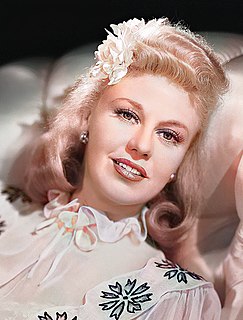A Quote by Diane Keaton
[Women photographers] provide an inspiring reminder to all women that the choice to see, or be seen, is ours. We live in a culture in which this decision is undermined by the notion that the single most valuable contribution a woman can make is to be visually attractive. Women photographers make a strong case for seeing and an even stronger case for recording what you see.
Related Quotes
If photographers are responsible for creating or reflecting an image of women in society, then I must say, there is only one way for the future, and this is to define women as strong and independent. This should be the responsibility of photographers today: to free women, and finally everyone, from the terror of youth and perfection.
If photographers are responsible for creating or reflecting an image of women in society, then, I must say, there is only one way for the future, and this is to define women as strong and independent. This should be the responsibility of photographers today: to free women, and finally everyone, from the terror of youth and perfection.
Women have to make a living. We don't live in a wealthy world where we even have a choice. We're losing our choice of whether or not we need to work. If we want to work, we obviously should work and have that choice, but a lot of women can't even get to the word "want." They need to work. And it's great to see women who needed to work and found a way to become a firefighter or a steel worker. That, to me, is very exciting.
And that desire-the strong desire to take pictures-is important. It borders on a need, based on a habit: the habit of seeing. Whether working or not, photographers are looking, seeing, and thinking about what they see, a habit that is both a pleasure and a problem, for we seldom capture in a single photograph the full expression of what we see and feel. It is the hope that we might express ourselves fully-and the evidence that other photographers have done so-that keep us taking pictures.
"First female president." That's it, and that's nowhere near, by the way, as powerful or penetrating as the first African-American president. I mean, women, yeah, I mean, make the case that they've been victimized. But they can't put themselves in the same shoes as slavery's legacy for example. Now, women might try to make the case. Hillary [Clinton] might try to make the case about not being ought to be able to vote, but it ain't gonna fly.
The most obvious ones inspiring me are probably women in political life. There are also many women in artistic endeavors, but if they're painters, you don't necessarily see them, or if they're actors, you see the role they're playing. In political life, you see women of enormous courage and smarts and humor, and that releases the talent, especially in little girls who are watching.
Most women do not have [abortions] with some sort of party going on. It is the hardest decision that a woman ever has to make . . . One of the reasons we've had to make this decision is because so many women were found bleeding, dead, with hangers in their bodies because they were doing it themselves. The idea of this was to make it safe and clean - that was the reason the law came into effect.
In the Western world, women have no other choice. In India, no. And I'll explain the reason. It's a reason that also has to do with my own case. In India women have never been a hostile competition with men - even in the most distant past, every time a woman emerged as a leader, perhaps as a queen, the people accepted her. As something normal and not exceptional.
There's an idea that it's hard to be a woman artist. People assume that women have fewer opportunities, less power. But it's not any harder to be a woman artist than to be a male artist. We all take what we are given and use the parts of ourselves that feed the work. We make our way. Photographers, men and women, are particularly lucky. Photography lets you find yourself. It is a passport to people and places and to possibilities.
I actually felt like college was a much better and more comfortable environment for me than high school was. I think that can largely be attributed to the fact that I go to Barnard, which is a women's college that promotes women's leadership, a strong community and independence which are all things I obviously value. Before I got to school I think I expected most women there to identify as feminist, which I found wasn't necessarily the case, but I loved that I was able to have really intelligent and stimulating conversations with women about feminism no matter how they identified.


































